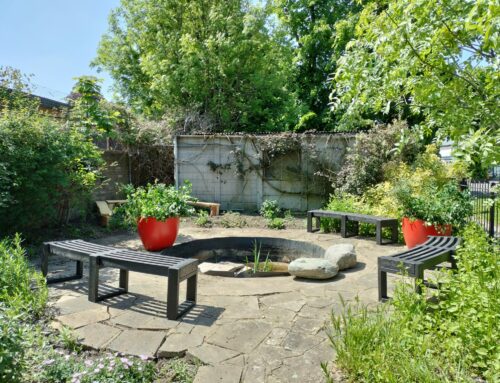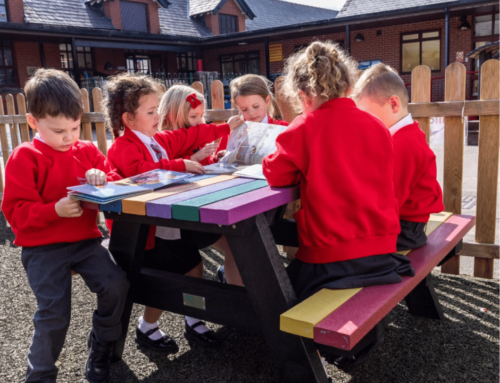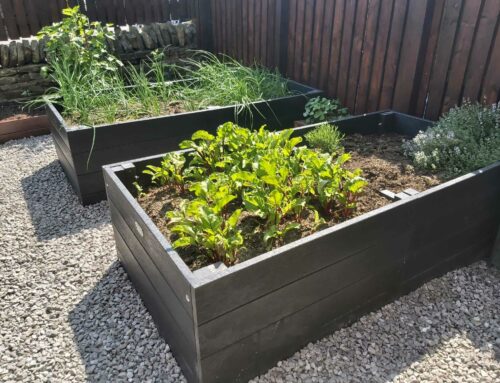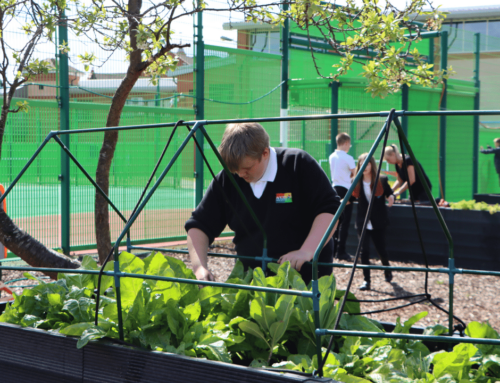A Look into the Nottingham’s Moveable Feast Project
It has been a pleasure to work with Nottingham Business Improvement District (BID) – a business-led, not for profit organisation, whose drive and vision on this innovative project turned it from a sketched idea on paper to a verdant and sustainable oasis in reality.
Net zero cities
Greening urban landscape is a part of many regeneration projects as many towns and cities are recognising the importance of wellbeing and also sustainability. Nottingham City Centre is known for its bustling streets, rich history, and diverse population. Driven by all sectors of the community, the city has had a long history of being a leader on climate action, from setting the most ambitious carbon neutral target of any Core City in the UK which is to be carbon neutral by 2028 by using these four key objectives:
1. Significantly reducing carbon dioxide (CO2) emissions across a variety of themes such as transport.
2. Offsetting city emissions through a range of actions such as tree planting.
3. Making the city resilient and adapted to the adverse impacts of climate change such as flooding risk.
4. Improving the city’s natural environment.
Please see the Nottingham BID Green Healthy City information page.
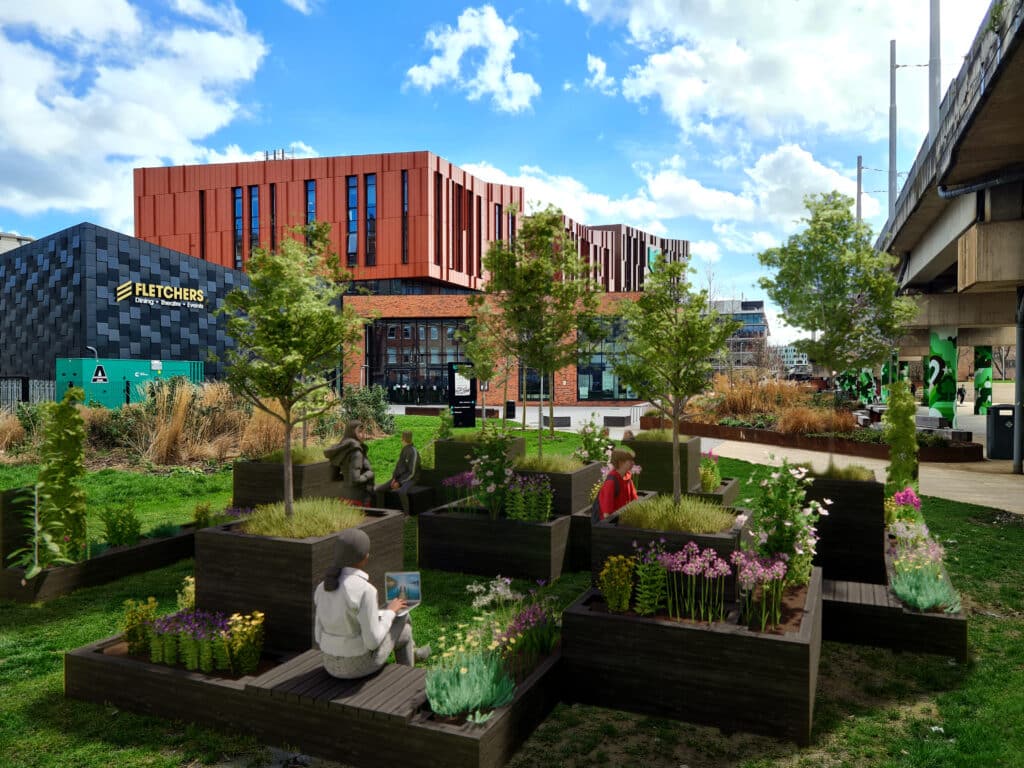
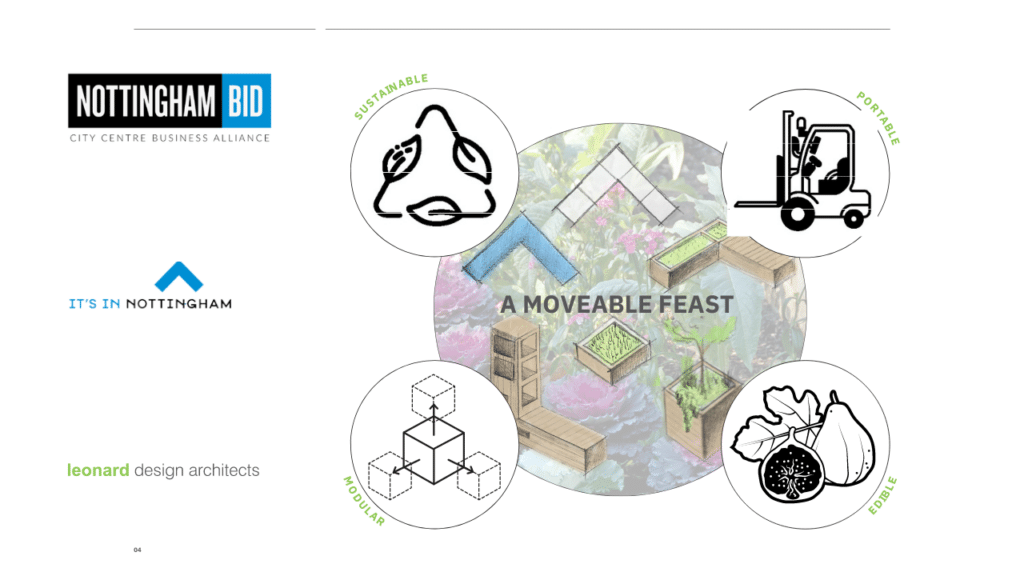
Biophilic city design
Moveable Feast is a project that Nottingham BID created to align to the carbon neutral goal and make a series of attractive, accessible, portable, adaptable, and edible nature spaces where all members of the public can meet, pass-through, explore, sit and rest, and seek shade during the summer months. The project has several goals, including:
– Bringing greenery to the urban landscape of Nottingham City Centre
– Creating accessible and inviting spaces for all members of the public
– Promoting sustainability and reducing the carbon footprint of the city
– Encouraging biodiversity and supporting local wildlife
– Enhancing the overall aesthetic of the city
The Role of British Recycled Plastic Planters
The Nottingham Business Improvement District project team chose customised British Recycled Plastic planters to bring the project to life. These planters are made from 100% recycled plastic, which not only keeps plastic waste out of landfills and oceans but also reduces the carbon footprint associated with traditional gardening materials. Plus, they are incredibly durable and long-lasting, making them a great investment.
The British Recycled Plastic planters played a crucial role in the project by allowing the parklet design to be portable and adaptable, collaborating with Steve Lane, of Leonard Design Architects to ensure the best design was achieved. The planters provided a sturdy base for the various plants and flowers that were used in the parklets, creating attractive and biodiverse spaces for all to enjoy. The project team also noted that the planters were easy to maintain and required minimal upkeep, making them a convenient option for city landscaping projects. If your regeneration project is looking to enhance public spaces with sustainable and durable planter and seating options, don’t hesitate to call us or send an email to inquire about our Marsden planter range contact here

